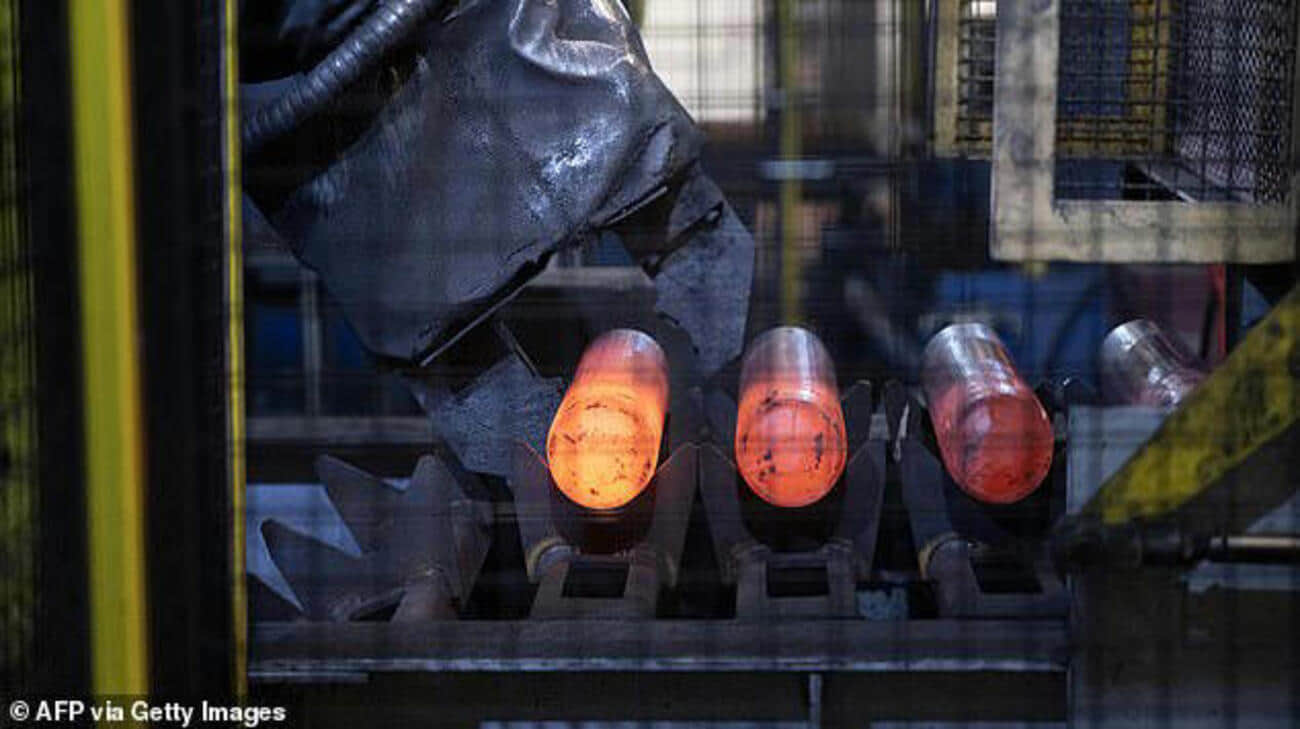« The worst has not come yet! » Trump’s fees ignite the world

US President Donald Trump’s plan to set tariffs for countries around the world has begun to disturb markets around the globe.
Even within the US, many shareholders expect unrest, as a price reduction, as Trump warned foreign governments that they will have to pay « a lot of money » to remove the fees he called « medicine ».
Asia stock markets have declined significantly, while in Europe they fell to the lowest level for a year and a half.
Meanwhile, oil prices fell and investors are afraid that the tariffs that Trump announced last week could lead to price increases, decreased demand and, potentially, to a global recession.
European Union ministers, who have disagreed on how to respond to Trump without risking more consequences for companies and their customers, will meet on Monday in an effort to agree on a common position.
Goldman Sachs-one of the largest and most popular banks in the world, based in New York, USA, has increased to 45 percent the likelihood the US can face with recession in the next 12 months.
Other similar banks, dealing with large investments, have reviewed their forecasts.
Economists at the JPMORGAN Bank, who previously envisioned a 1.3 percent gross growth growth, now predicts tariffs to push the US economy into a shrinkage of 0.3 percent.
Robert Pavlik, manager at Dakota Wealth Management in the US, providing financial services to individuals with great assets, says people are afraid that « the worst has not yet come. »
« They are concerned about what comes next – a recession in the country and then globally, which can lead to a possible depression, » Pavlik told Reuters.
While US markets are preparing for a blow, Trump has not given any sign that it will withdraw from its decision to impose tariffs, criticizing China for imposing revenge tariffs and repeating the call for the US Federal Reserve to lower interest rates.
Trump believes that lowering interest rates can help prevent a recession, stimulating the economy and keeping the demand for goods and services high, as lower interest rates make loans cheaper.
US stock indicators have significantly fallen on Monday and the S&P 500 was ready to confirm that the stock prices would fall for a long time. This happened in 2008, during the 2008 global financial crisis, and during the outbreak of the Covid-19 pandemic.
The tariff announcement has encountered criticism from other leaders and promoted the vengeance tariffs from China, the world’s second largest economy to call Trump’s behavior « Economic harassment ».
After a major decline in the Continental China Stock Exchange and Hong Kong on Monday, China’s Sovereign fund intervened to try market stabilization.
Shares in Taiwan dropped for almost ten percent – the largest decline ever within a day in percentage.
European defense shares, which had previously performed due to expectations for a boom of expenses from states, had been in the largest decline since April 2020.
Elon Musk, the richest man in the world, and a close trump ally in trying to reduce government spending on Saturday, said he hopes to see zero tariffs between the US and Europe. On Monday, he posted on social media a video of economist Milton Friedman praising the international trade system.
Investors and political leaders are still unsure whether Trump’s fees are part of a new permanent regime or a negotiating tactic to receive concessions from other countries.
Some are concerned, however, that a response to tariffs from Europe risks bringing even higher tariffs to European exporters.
European Commission President Ursula von Der Leyen wrote in X that Europe is willing to negotiate with the US, offering the removal of all tariffs on US goods in return for the same thing from the US.
« Because we are always ready for a good deal. But we are also prepared to respond with countermeasures. And to protect ourselves from indirect effects through trade relocation, » said von der Leyen.
Prime Minister Shigeru Ishiba of Japan, one of Washington’s closest allies in Asia, is also trying to reach a deal with Trump, but warned that it may take time.
Investors are now betting that the increased risk of a recession can push the US Federal Reserve to lower interest rates next month. So far, the head of the Federal Reserve, Jerome Powell, has signaled that there is no « hurry » for such a thing.
Some governments in Asia have already expressed a willingness to negotiate with the US to avoid obligations.
Taiwan’s president, Lai Ching, offered zero tariffs on Sunday as the basis for talks, while an Indian government official said Delhi did not plan to avenge. The Vietnamese leader, to Lam, agreed during a call with Trump on Friday to discuss an agreement.
In Europe, the Minister of Trade in the Netherlands, Reinette Klever, said Monday that the start of talks with Washington is essential. « We have to sit at the table with Americans and see how we can cut these fees, » she said.




